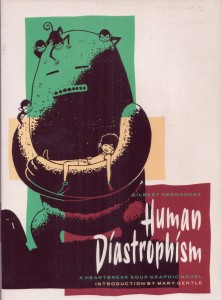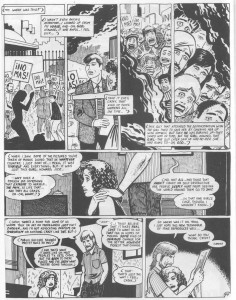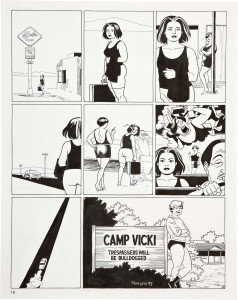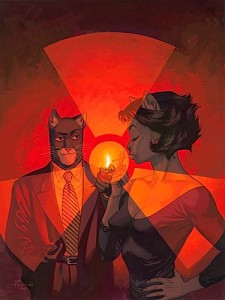When two specks in the distance start shooting at Ferdinand Bardamu on the first page of Céline’s Journey to the End of the Night, he quickly comes to the unshakable conclusion that it is all a big mistake. His only viable option is to get out of that situation as soon as possible. The colonel overseeing his fate, a man with no use for fear, is deemed a “monster” and “worse than a dog”, but absolutely typical of the army as a whole:
“…I realized that there must be plenty of brave men like him in our army, and just as many no doubt in the army facing us. How many, I wondered. One or two million, say several million in all? The thought turned my fear to panic. With such people this infernal lunacy could go on forever….Why would they stop? Never had the world seemed so implacably doomed.”
Bardamu’s attitude is one of absolute revulsion for his commanding officers. The report that his sergeant has been blown up while going to meet a bread wagon is an occasion for celebration (“that makes one less stinker in the regiment!…In that respect you can’t deny it, the war seemed to serve a purpose now and then!”). The countryside? Even on the best of days “dreary” and godforsaken, “if to all that you add a war, it’s completely unbearable.”
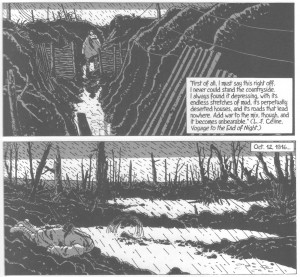
Continue reading →

